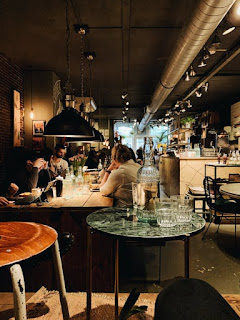Introduction to the hotel and food industry
Things
• describe the hotel industry
• describe the Food Industry
• Divide food activity into a restaurant
Hotel description
The hotel industry is a mature industry characterized by intense competition. The rise in market share usually comes at a competitive cost. Across the industry, much of the growth takes place internationally, not locally.
The general hotel categories are as follows:
• Commercial Hotel Provides mainly to business customers and usually provides room service, coffee shop, dining room, lounge, laundry and valet service as well as access to computers and fax services.
• Airport Hotel is close to airports and is easily accessible to offer any level of service from a clear location to a room service and may also provide bus or limousine services on the flight lines.
• The Economy Hotel offers a limited service and is known for its clean rooms at low prices that meet the basic needs of travelers.
• Hotel Accommodation was very popular. A typical hotel offers long-term accommodation.
• Casino Hotel is usually quite luxurious. Their main purpose is to support the gambling industry. Casino hotels often offer high-profile entertainment and excellent restaurants.
• Hotel Resort is a planned tourist destination, usually for guests. This is because recreational areas are located on the sea or in mountains far from the inner cities. Leisure hotels may offer any form of entertainment to keep their guests happy and busy.
Description of the Food Sector
Offering good food or drinks during a business meeting, weddings, parties and any other event and ceremonies in elegan china ware or casual paper-plate refers to cooking. The opportunities for the catering business are increasing every year, given the right demographics - individuals, groups, or businesses are able to play this service.
There are key categories:
• Center:
There are providers in hospitals, universities, airlines, large hotels and retirement centers that provide a wide variety of food and beverages to a large number of people on an ongoing basis - usually at the institution itself. The facility usually concludes a contract with the catering company to provide this service.
• Public:
These providers provide food and beverage service to the community group, charities, companies, businesses, and individuals at a restaurant or banquet hall or outside the building in a designated area.
Several things Distinguish a catering operation from a restaurant:
Catering is usually done by prearranged contract - food and drink provided at a certain cost to a specific number of people. The menu at a catered event is usually more limited than a restaurant menu and is chosen in advance by the client. The way the food is prepared is different, too. Although both restaurant and catering chefs do the basic preppring, or prepare the food ahead of time to a certain extent, catering chefs prepare their food so that it only needs brief final cooking, reheating, or assembly prior to service.





0 Comments